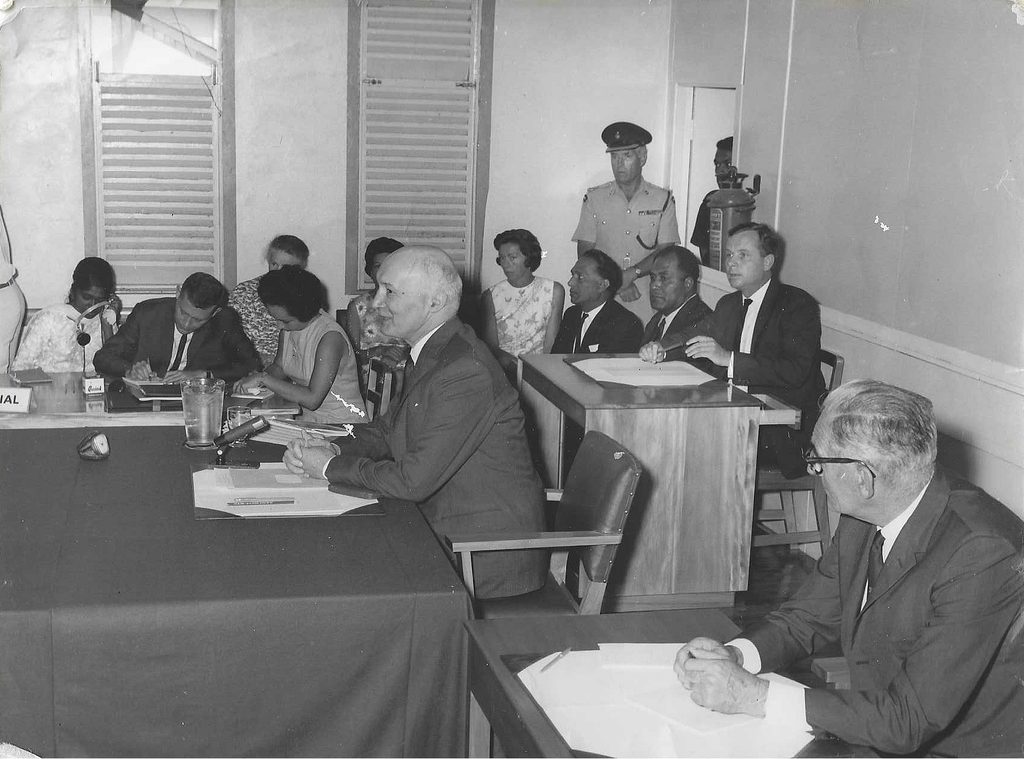eter John Westwood served as an administrative officer in Fiji for 13 years during the final period of Colonial rule.
He was first posted to Fiji in 1958 at a time when the British Government was already beginning to plan for the independence of its remaining colonies.
This involved replacing overseas appointments wherever possible and focusing on making its colonies economically viable.
In the case of Fiji, it meant helping and encouraging Fijians and Indians to develop their land. Peter’s career in Fiji was largely devoted to working with Fijian and Indian communities to this end.
Peter was born in Oxford on January 2, 1934. He started his education at the Dragon School in Oxford before moving on to Wellington College.
After Wellington he did his National Service in the army, being commissioned into the Special Boats section of the Marines. Afterwards he went up to Merton College Oxford before joining the Colonial Service in 1958 and being posted to Fiji (Peter always assumed this was because one of his cousins, Christopher Conlagh Legge, was a District Commissioner in Fiji at the time).
On his arrival in Fiji, Peter was posted to Labasa where he was appointed DO Macuata, a role which he filled for two years and where he first learned the duties of district officer. These included supervising village water supplies, Fijian schools, feeder roads, resolving disputes, conducting marriages, registering births, marriages and deaths, supervising the local gaol, chairing the Rural Local Authority, censuses, voting, and liaising with all the other departments in the district.
During his time as DO Macuata, Peter travelled extensively around the district, visiting Fijian villages where he succeeded in learning the language and acquiring a considerable knowledge and understanding of Fijian customs.
As a result, he was selected to be seconded to the Native Land Commission where he trained under the chairmanship of Ratu Edward Tuivanuavou Cakobau (later Sir) before being assigned to work in the Bua District on the demarcation of Fijian Reserves. Bua was, at this time, one of the remotest and least developed parts of Fiji and Peter spent nearly a year there working and living in Fijian villages.
Peter always said this was one of the greatest experiences of his life in Fiji which resulted in his lasting love for Fijians and their culture.
Disappointingly for Peter, his time in the NLC came to a sudden end because of disturbances on Viti Levu, arising out of the dispute between sugar cane farmers and the Colonial Sugar Refining Company (CSR) about a new contract which the company was seeking to impose on farmers.
This had led to unrest with strikes in Suva and Lautoka and a murder attempt on Commissioner Western H.T.R McAlpine. Although McAlpine survived, he was badly wounded and obliged to retire and Peter was appointed DO Lautoka to reinforce the district administration in the Western Division. Following an inquiry chaired by Sir Malcom Trustram Eve, the dispute eventually petered out but left a lot of bitterness towards the CSR.
In 1962, Peter returned to England on leave after his mother died in a tragic accident. On his return to Fiji he was appointed Divisional Development Officer Cakaudrove in Savusavu, following the creation of a Land Development Department. His role was to coordinate the various departments of government in encouraging the subdivision and development of reserves.
In Cakaudrove there was only one crop and that was copra. Once again Peter found himself spending most of his time visiting Fijian villages, mainly on foot, and using his fluency in Fijian and knowledge of the Fijian people to engage them in the importance of looking after their land, planting new coconut trees and building copra driers so that quality copra could be produced and marketed. This was met with only limited success.
In 1970, once again problems developed in the sugar industry when the CSR (now called the South Pacific Sugar Mills (SPSM) sought to introduce a new contract with the cane farmers.
By this time, Peter was Divisional Development Officer Western. Under the 1960 contract, as the parties could not agree the terms, there had to be an arbitration which Lord Denning, who at this time was Master of the Rolls in England, agreed to chair.
Peter was appointed as his secretary and given responsibility for organising the arbitration proceedings. The main issue was of course how the profits from the production of the sugar should be shared which was a hugely sensitive issue.
In the event, Lord Denning’s decision was received by the SPSM with great anger which no doubt played a significant part in their decision to leave Fiji, which they did in 1973. The CSR had been in Fiji since 1880 and the sugar industry was at the time Fiji’s principal source of wealth.
After the conclusion of the arbitration, with independence in the offing, Peter was posted to Labasa as Commissioner Northern. His final duties were to be to organize the independence celebrations and to welcome and accompany Prince Charles (now King Charles) on his visit to the Northern Division.
One further outcome of the arbitration was the meeting of Peter with his future wife, Vimla Pillai, who was a member of the Hansard staff.
Vimla and Peter were to meet again in Australia where they married before returning to England. In England, Peter took the Law Society exams and qualified as a solicitor before joining the firm of Burchell & Ruston and becoming Under Sheriff of Surrey.
Peter died on January 19, 2025 at the age of 91. He is survived by Vimla and their 3 children, William, Julia Marshall and Timothy and two grandchildren, Joseph and Charlie Marshall and son-in-law, Giles Marshall.
RUPERT HUGHES was the former DO (District Officer) Savusavu from 1963-1966 and
a lifelong friend of Peter Westwood.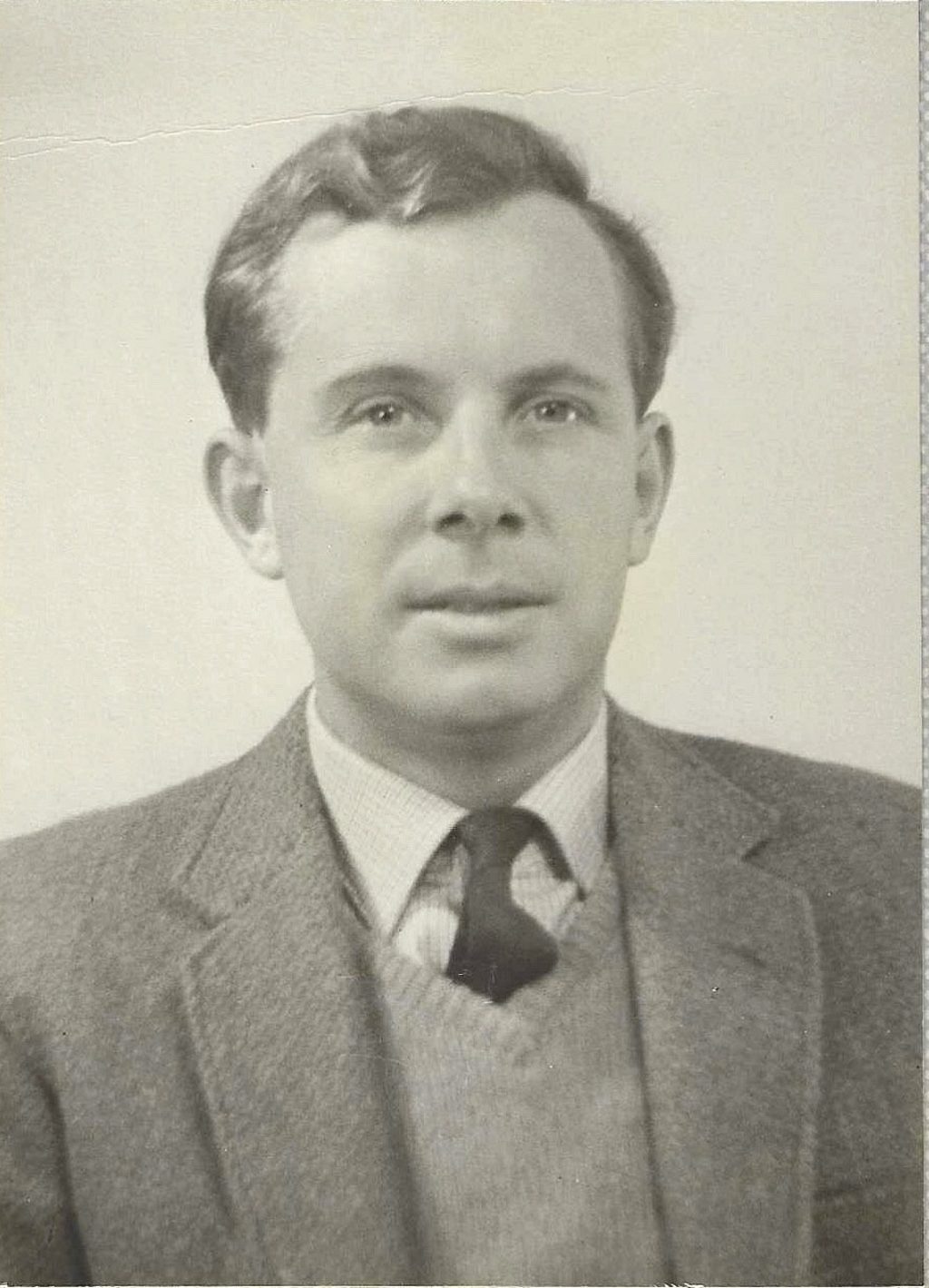
2. Peter before leaving to work in Fiji. Picture: SUPPLIED
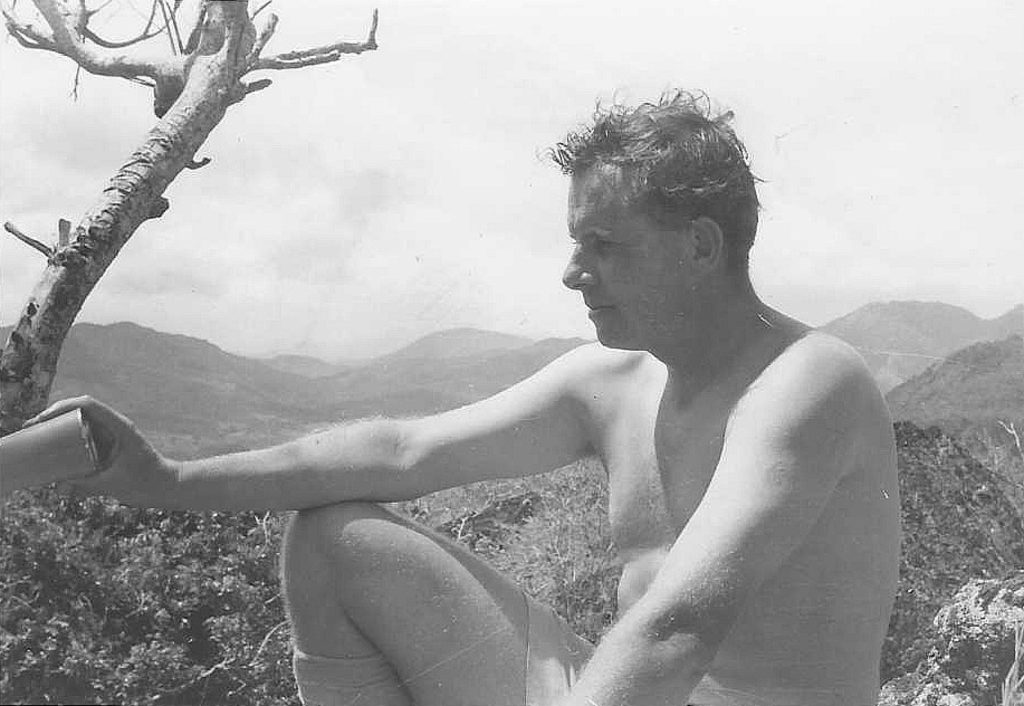
Peter on top of the Three Sisters mountain range in Macuata. Picture: SUPPLIED
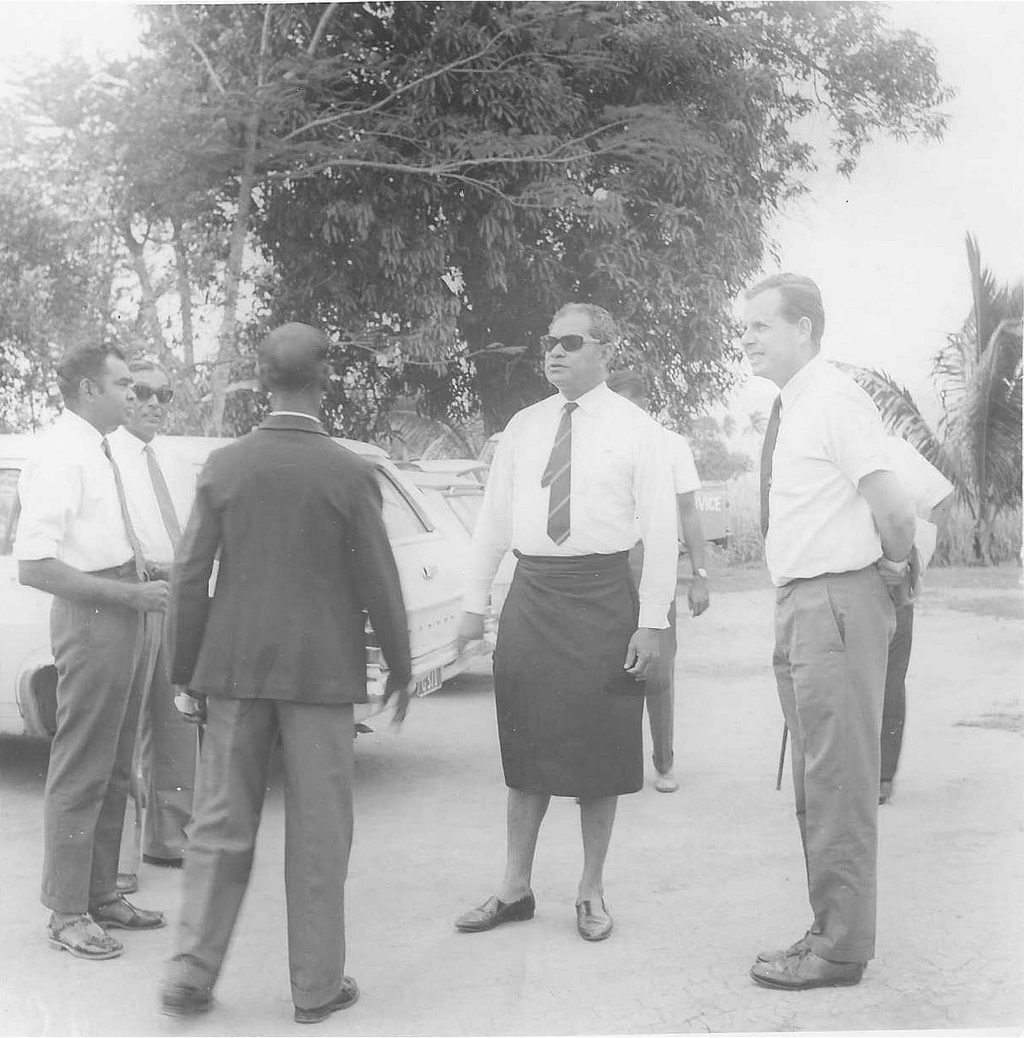
1. Peter (far right) with Jonati Mavoa who was visiting Labasa as Minister of Social Services.
Picture: SUPPLIED
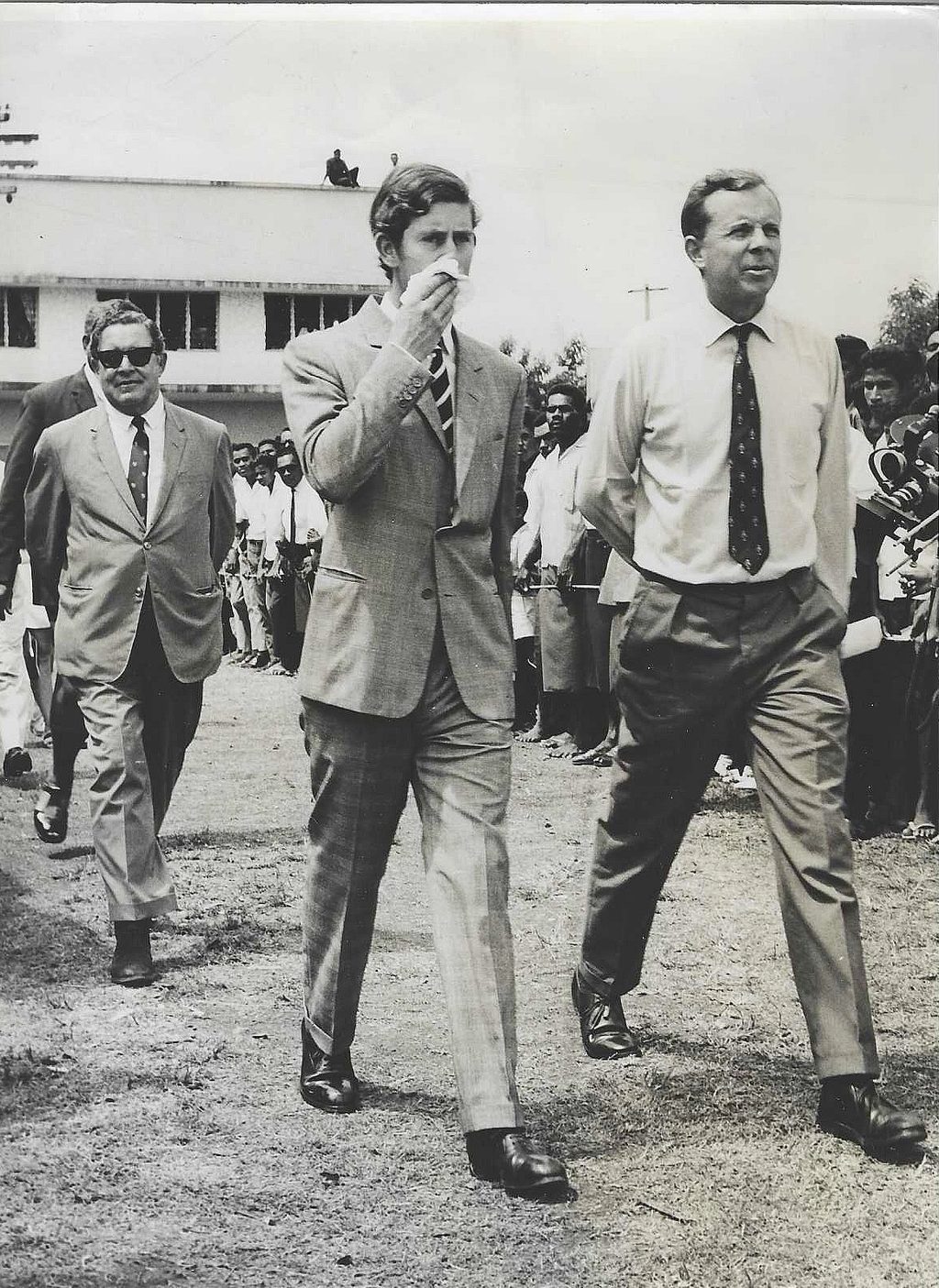
3. Peter with Prince Charles (now King Charles) during his visit to Labasa in 1970. Picture: SUPPLIED
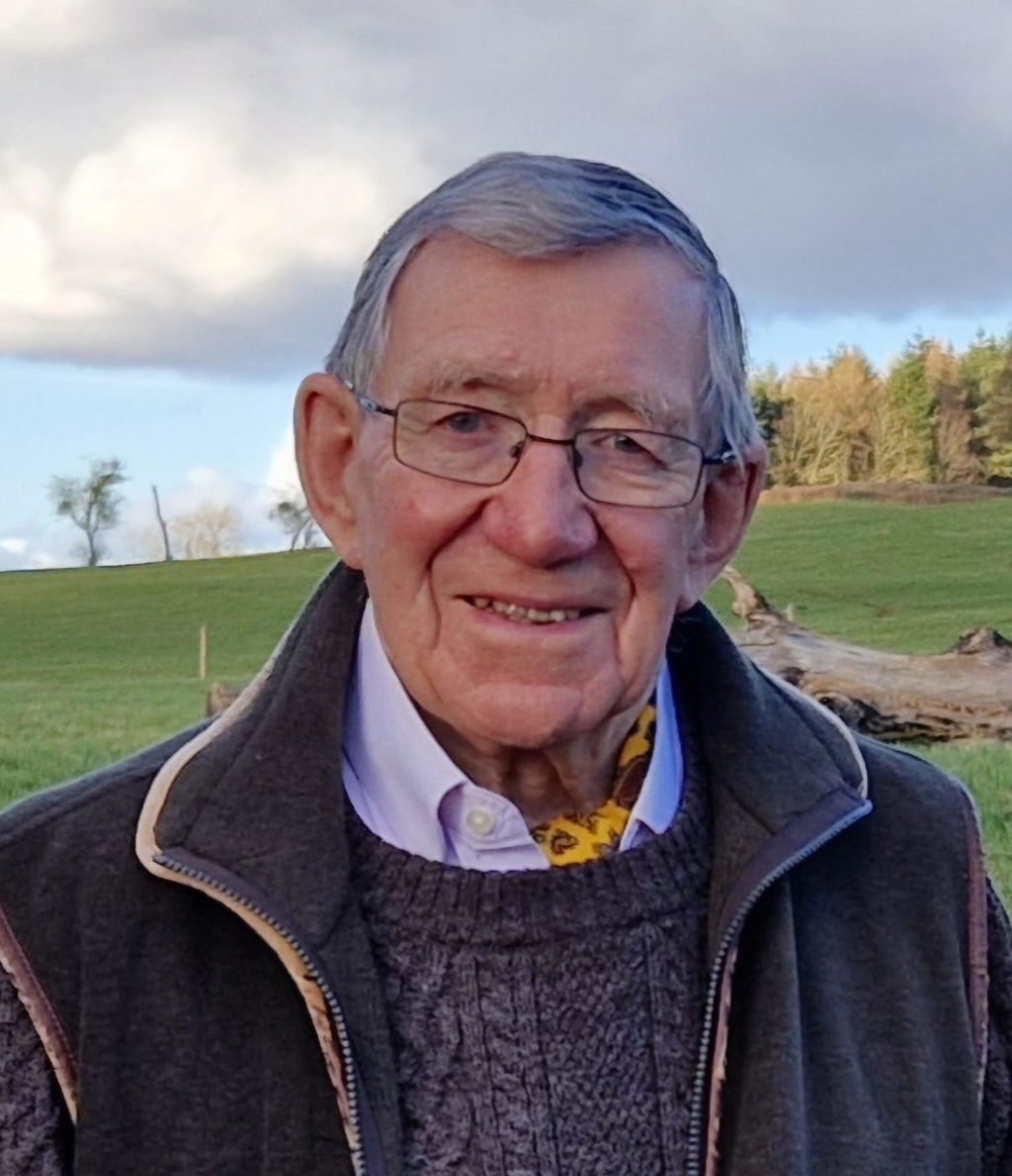
Rupert Hughes

